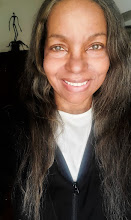Our Stories
Before we had air conditioning and before outdoor entertaining was fashionable, my mother prepared lavish cold-cut suppers to serve in our backyard. Sometimes, if the budget allowed, she cooked a few vegetables, sausage links or other meats on her barrel grill. She had a ton of grilling recipes from books and magazines that she was always anxious to try out on company. She learned her grilling skills from a host of pit bosses in and out of our family.
 |
| Black Cowboys of Texas |
Uncle Tinney was only one of the black cowboys in our family. The closest one to me was my father, who had been a cowboy since he was born practically. And I do not mean simply dressing up like a rodeo dude. My mother said, "Uncle Tinney was not really a cowboy. He had been a cowhand on a local ranch and learned his style of cooking from real cowboys. Ask my father--a real cowboy--and learn the difference between a cowboy and a cowhand.
My father was a rancher, who came from a ranching tradition that required him to be more than proficient on horseback and open fire pits on the range. He knew about Saturday Night Suppers, but not those at Uncle Tinney's place. The Saturday Night Suppers my father attended were generally on the range attending the herd when some need arose that needed attention. I always wanted to spend the night out on the range, but my mother said, "No."
My father was a rancher, who came from a ranching tradition that required him to be more than proficient on horseback and open fire pits on the range. He knew about Saturday Night Suppers, but not those at Uncle Tinney's place. The Saturday Night Suppers my father attended were generally on the range attending the herd when some need arose that needed attention. I always wanted to spend the night out on the range, but my mother said, "No."
Uncle Tinney was married to my grandmother's sister, part Comanche through their father. My great grandfather knew about the old way and taught it to his offspring and in-laws of offspring.I have memories of my great grandfather. He lived his last years with my grandmother's oldest sister, whom I visited during some holidays while my great grandfather was still alive. I developed an interest in his old stories when I was in elementary school before he died. That could be the way Uncle Tinney learned some of his outdoor cooking techniques. My mother said Uncle Tinney dug a hole in the ground behind his house and lit a slow fire in the hole, while real cowboys dug holes and lit fires on the range. I wanted to dig a hole behind our house and light a slow fire, but my mother said, "No."
Then Uncle Tinney placed a whole pig or most of a pig wrapped in corn shucks in the hole and smoked the pig all day Friday. On Saturday just before the supper, he took out the tender meat, falling off the bone. With fresh white bread, his wife, my great aunt, baked in their outdoor oven, Uncle Tinny made sandwiches to sell at the supper. Everybody from miles around, black, white and brown, came to eat, drink Uncle Tinney's home-brewed beer, listen to Cousin Roy play is guitar and sing out of tune, and kick up dust dancing in the side yard.
 |
| Ojibwa Woman Cooking An Ethnographic Biography of Paul Peter Buffalo |
"My father taught all of us children how to hunt, clean and cook wild meat outdoors," my grandmother said. "That's the old way, the only way when he was a boy. Our people were starving. Wild meat and small game were how we survived because there was no money or store to buy meat. 'And why should you buy meat?' Bigmama's father would ask, 'when you can go out the back door and bag a rabbit or a squirrel, skin it and cook it over an open fire for supper.' So that is what we did," Bigmama said. "Very much in the old way of our prairie ancestors."
Civilization changed greatly during the period between Bigmama's childhood and my own.
|
Hard Cover
Amazon Kindle
|
Sunny Nash is an author, producer, photographer and leading writer on U.S. race relations. She writes books, blogs, articles and reviews, and produces media and images on U.S. history and contemporary American topics, ranging from Jim Crow laws to social media networking. Sunny Nash is the author of Bigmama Didn't Shop At Woolworth's (Texas A&M University Press), about life with her part-Comanche grandmother during the Civil Rights Movement.
Sunny Nash’s book is recognized by the Association of American University Presses as essential for understanding U.S. race relations. Nash's book is also listed in the Bibliographic Guide for black studies at the Schomburg Center for Research in Black Culture in New York; and recommended for Native American collections by the Miami-Dade Public Library System in Florida. Nash uses her book to write articles and blogs on race relations in America through topics relating to her life--from music, film, early radio and television, entertainment, social media, Internet technology, publishing, journalism, sports, education, employment, the military, fashion, performing arts, literature, women's issues, adolescence and childhood, equal rights, social and political movements--past and present—to today's post-racism.
© 2023 Sunny Nash. All Rights Reserved Worldwide.
www.sunnynash.blogspot.com
~Thank You~


No comments:
Post a Comment
Note: Only a member of this blog may post a comment.